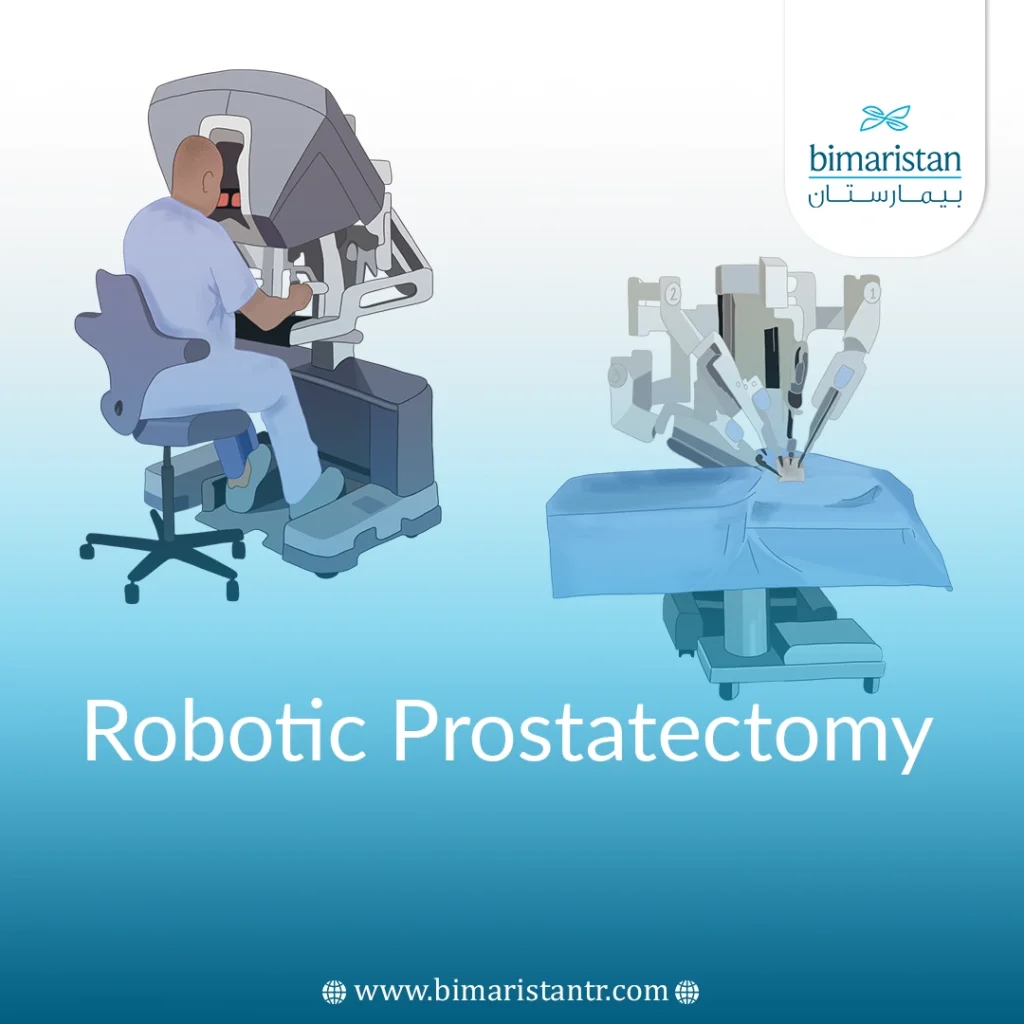In the age of advanced medical technology, medicine continues to evolve to provide accurate and effective treatment solutions for various health conditions. Among these new technologies is robotic prostatectomy, which has become an advanced option for many patients around the world. Turkey, with its appeal as a global medical center, embraces this pioneering technology, combining high medical expertise and cutting-edge technology to provide outstanding healthcare.
In this article, we will review how robotic prostatectomy surgery in Turkey can be the best option for patients, highlighting the unique benefits and possibilities offered by this innovative technology.
Robotic prostatectomy surgery
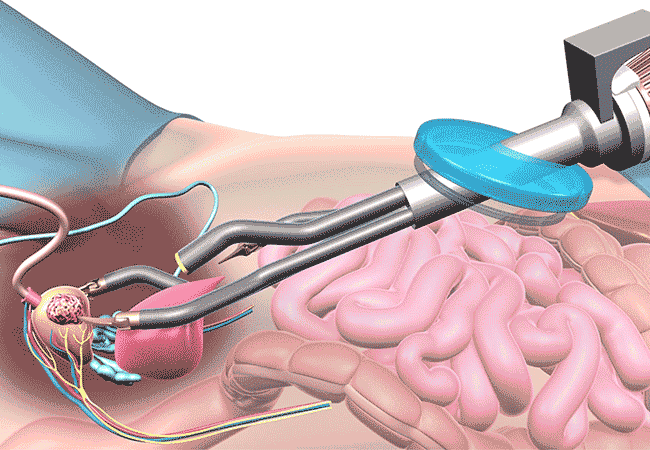
Robotic Assisted Radical Prostatectomy (Da Vinci Surgical Systems) is generally used to treat urinary tract cancers (prostate, kidney, adrenal, bladder, and ovarian cancers). In addition, it is also used to treat urinary tract strictures. It can also be used in cases of uterine prolapse in women and fistulas between the bladder and vagina.
We perform robotic surgery to treat urologic and prostate cancers in Turkey.
In this article, let’s answer some questions about robotic prostatectomy, one of the most successful methods of treating urologic diseases.
Robotic surgery
Prostate cancer or enlargement surgery is performed using robots whose arms can rotate about 540 degrees around their axis, mimicking the movement of the human hand.
The robots in these arms have 7 different degrees of movement to ensure that the surrounding tissues are not damaged.
The oncologist and urologist control these arms via a separate computer.
What is the experience with robotic prostatectomy at our centers?
The centers and hospitals we deal with generally have no less than ten years of experience in the field of laparoscopic or robotic surgery for urinary tract cancers (prostate, kidney, urethra, adrenal gland, bladder cancer, and ovarian cancer).
Some surgeons have a Robotic Surgery Expert and Trainer Certificate, which Intuitive International (the creator of the da Vinci Surgical Systems) awards to a limited number of surgeons.
What are the advantages of robotic prostatectomy surgery?
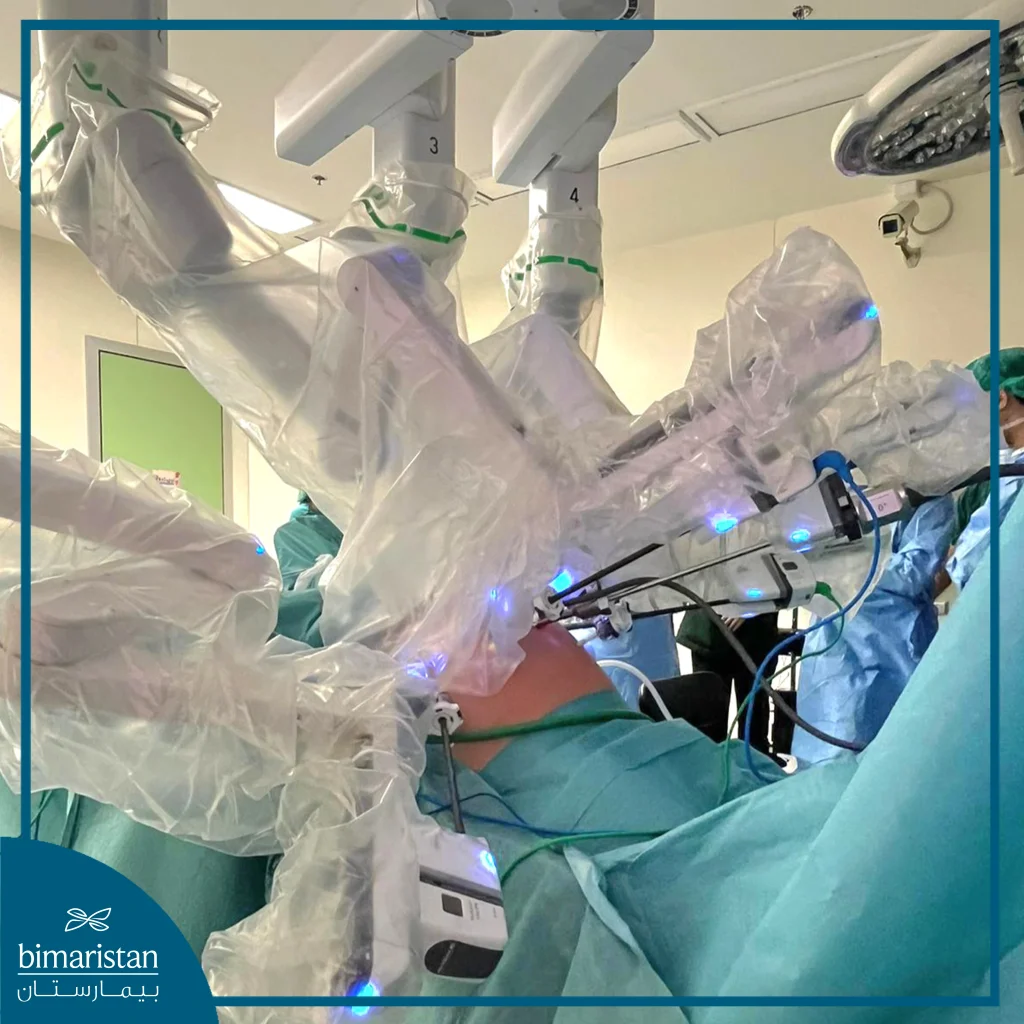
In general, the bleeding rate of robotic prostate cancer surgery is significantly lower than other methods, and the operation is performed through a very small incision, unlike other methods that cause the patient post-prostatectomy pain.
The small incision helps the patient to return to his daily life much faster than in other traditional methods.
Reducing the incidence of postoperative urinary incontinence to only about 5% in the case of robotic prostatectomy and accelerating the patient’s ability to control the bladder significantly, in addition to the patient retaining his sexual ability, which is one of the most important advantages of robotic prostate removal.
Isolating the nerves responsible for erections in robotic surgery is much easier than other methods.
The results of the operation on the cancerous tumor are very close in both laparoscopic and robotic surgery.
Where is robotic prostatectomy surgery performed in Turkey?
Our operations are mostly performed at Memorial Şişli Hospital, Memorial Bahçelievler Hospital, Çam Sakura Hospital, and Akdeniz Hospital in Antalya.

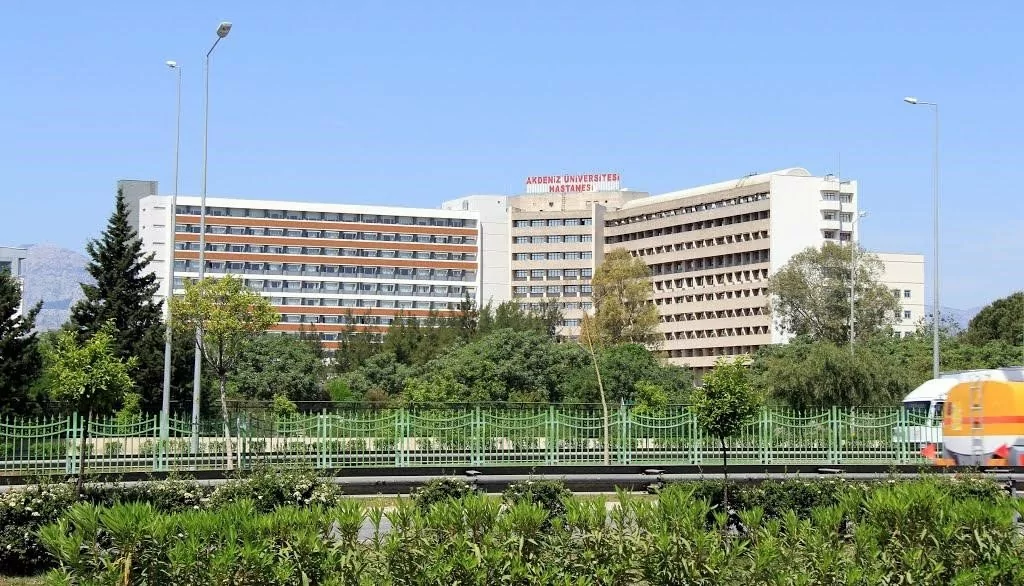
Most patients suffer from diseases and issues related to the urinary tract, especially the elderly, as immunity decreases with age. Therefore, hygiene and sanitary sterilization conditions throughout the treatment period are among the most important advantages that distinguish successful centers. We look for these when contracting or recommending any medical center, in addition to the experience and good treatment that the patient will receive throughout his recovery period.
How are preparations for robotic prostatectomy made?
The patient is admitted to the hospital one day before the surgery, where the anesthesiologist studies the medical tests the patient has undergone and the likelihood of being in intensive care after the surgery and asks the patient not to eat or drink after midnight.
How does the process work on the morning of the operation?
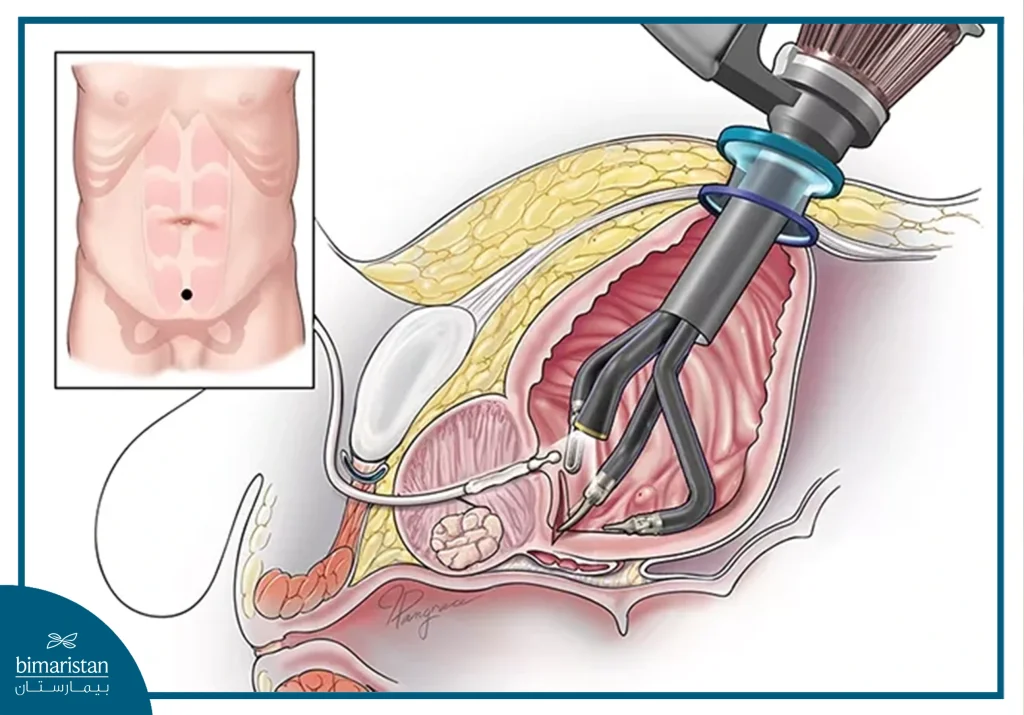
After the patient undergoes anesthesia, the surgeon makes 5 8mm incisions in the abdomen, through which the robot’s arms will be placed as the robot’s arms enter through these openings. Then, the actual surgery begins.
What awaits the patient after robotic prostate surgery?
Immediately after surgery, the patient is usually transferred to the ICU and monitored there for 6-8 hours, after which they are transferred to the individual room in the ward, where they can start taking fluids.
What does a patient do on the first day after a robotic prostatectomy?
On the morning of the first day after surgery, the patient is asked about bowel activity. If it is good, the patient will start eating liquid foods.
If the patient is in pain, known painkillers are given (usually not required), and the patient is asked to walk around the ward to ensure that bowel activity returns as soon as possible.
What does a patient do on the second day after a robotic prostatectomy in Turkey?
Patients usually switch to normal nutrition on this day (the second day after surgery), and if there are no other complications, they are discharged from the hospital.
Risks of robotic prostatectomy
- Bleeding.
- Infection at the surgical site.
- Damage and injury to neighboring tissues.
Da Vinci robot radical prostatectomy side effects
Rates of major side effects from robot-assisted radical prostatectomy are lower than open surgical approaches. The most common side effects include the following:
Urinary incontinence (lack of urinary control after prostate surgery)
Similar to open surgery, urinary incontinence can occur after robotic prostatectomy. However, this side effect often improves over time.
Erectile dysfunction (ED)
The return of erectile function after radical prostatectomy depends on the patient’s age, the degree of sexual function before prostatectomy, and whether nerves were damaged during surgery. Especially if the cancer has invaded nerve cells, surgeons will use specific techniques that meticulously preserve the nerves during radical prostate cancer removal to minimize the surgical impact on sexual function.
The rate of development of erectile dysfunction is much lower than other surgeries.
This procedure can also be performed on patients with benign prostate hypertrophy of the large prostate.
Marital relationship after prostatectomy
A common treatment for prostate cancer is prostatectomy, a surgery to remove the prostate gland. This surgery can affect a man’s sexual function, including erections and ejaculation. But it’s important to know that the impact on sex varies from man to man.
Here are some facts to know:
- Some men may experience erectile dysfunction after surgery.
- The percentage ranges from 10% to 70% depending on various factors such as the man’s age, blood vessel health, and the extent of the cancer.
- Erections usually improve over time,
- Most men regain some or all of their sexual function within two years.
- Treatments such as medications, pumps, and implants can help restore erections.
- Some men may experience decreased or loss of ejaculation.
- This usually occurs when the nerves responsible for ejaculation are removed during surgery.
- There are treatments available, such as medications and assistive devices, to help with ejaculation.
- Most men can still enjoy marital intimacy after prostatectomy.
- There are many positions and methods that couples can try to find what works for them.
- Communication, patience, and mutual support are very important during this period.
Tips to improve your relationship after robotic prostatectomy
- Talk to your doctor:
- Discuss with him your concerns about sexual functions.
- He can give you information and advice on how to restore your sexual function.
- Join the support group:
- Talking to other men who have gone through a similar experience can help.
- You’ll find support, advice, and friendship.
- Be patient:
- Restoring sexual function after surgery takes time.
- Don’t compare yourself to others.
- Connect with your spouse:
- Discuss your concerns and needs with her.
- Be honest and open.
- Try new things:
- There are many positions and methods that couples can try to find what works for them.
- Be creative and enjoy each other.
- Seek professional help:
- If you are experiencing psychological problems or a difficult marital relationship,
- a therapist can help you cope with changes and overcome challenges.
- If you are experiencing psychological problems or a difficult marital relationship,
Remember:
- Prostatectomy does not mean the end of sexual intimacy.
- With patience, communication, and support,
- couples can overcome these challenges and enjoy a fulfilling sexual relationship.
- There are many resources available to help you and your spouse.
- Don’t hesitate to ask for help if you need it.
Studies on robotic prostatectomy in Turkey
All recent studies recommend robotic surgery as recent studies have shown that robotic prostate surgery is the most preferred option, GOLD STANDART, due to its amazing results and reduced side effects resulting from similar surgeries using traditional methods.
Sources:
- Johns Hopkins Medicine
- NHS
- Prostate Matters
